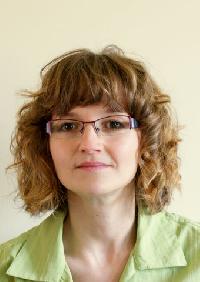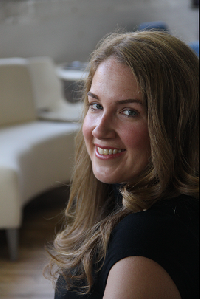productivity/output in translation Thread poster: Sylwia Syposz
|
|---|
Sylwia Syposz 
Australia
Local time: 22:57
Member (2012)
English to Polish
+ ...
Hello,
I have been translating for time now and have already chosen the fields, which I would like to specialize in. As I am a freelance translator I send CVs and my offers to collaborate with different translation agencies. Majority of agencies request good/high output/productivity. In my case the output depends on how much the translated texts is specialized.
I know that it is also good to be at least very good in using CAT tools, but does the productivity depend mainly on u... See more Hello,
I have been translating for time now and have already chosen the fields, which I would like to specialize in. As I am a freelance translator I send CVs and my offers to collaborate with different translation agencies. Majority of agencies request good/high output/productivity. In my case the output depends on how much the translated texts is specialized.
I know that it is also good to be at least very good in using CAT tools, but does the productivity depend mainly on using CATs?
I wonder, if there are any other tips and tricks to improve one's productivity while translating.
I would be very grateful for any suggestions.
Thank you,
Sylwia ▲ Collapse
| | | | Claudio LR
Local time: 12:57
English to Italian
+ ...
| Specialising... | Aug 22, 2012 |
You partly answered your question. Specializing is the main key to productivity. And unless you are a former professional in a given field (medicine, finance, etc.) this means having the entrepreneurial spirit to invest (a lot) in training in one field (or few very close fields, and the fewer the better, one being the best…) and not just hoping you'll become specialized by just translating in that field. Most translators lack this spirit. Take advantage of this.
As for requests from agen... See more You partly answered your question. Specializing is the main key to productivity. And unless you are a former professional in a given field (medicine, finance, etc.) this means having the entrepreneurial spirit to invest (a lot) in training in one field (or few very close fields, and the fewer the better, one being the best…) and not just hoping you'll become specialized by just translating in that field. Most translators lack this spirit. Take advantage of this.
As for requests from agencies for high output capacity, you shouldn't even care about this. A sound professional translator has several clients and does not depend mainly on one, so cannot promise a regular high output capacity to one client. Agencies with such requests are generally looking for the bottom end of the market. ▲ Collapse
| | | | Allison Wright (X) 
Portugal
Local time: 11:57
| Productivity depends on many things | Aug 22, 2012 |
--> Develop your own memory (the one in your brain).
--> Your brain cannot hold everything. Make your own terminology lists. I mean lists, not TMs.
--> Work at increasing your span of attention, or concentration span. The longer you can translate without being distracted, the quicker you work, and the better the quality of that work.
--> If you do not already do so, learn to touch-type.
The best CAT tool in the world will not increase your tran... See more --> Develop your own memory (the one in your brain).
--> Your brain cannot hold everything. Make your own terminology lists. I mean lists, not TMs.
--> Work at increasing your span of attention, or concentration span. The longer you can translate without being distracted, the quicker you work, and the better the quality of that work.
--> If you do not already do so, learn to touch-type.
The best CAT tool in the world will not increase your translation productivity if you have not got the hang of translating at a fairly good pace before you start using them.
On the ProZ "availability calendar" (on your profile) there is a place where you can enter the number of words you can comfortably cope with per day. You need to decide how many words you can translate every day (without having to cancel every other aspect of your life). Time yourself on various texts for one hour, and use the average of these timed efforts as a basis for your calculation.
My words per day is set at what some might call a leisurely 1,800 words per day. I have one agency client who very rarely sets a deadline for me that does not take this into account. I may well be "more productive", but have found that it is not necessarily to my advantage to say so.
When you register with an agency or outsourcer, it is perfectly acceptable to state your capacity - without giving reasons. Agencies normally ask, anyway - or should. If you only translate 1,000 words per day, say so. You may have your own reasons (teething baby, another job, working part-time, studying part-time, learning a CAT tool) which you are not obliged to share with others.
Agencies do get smaller jobs with generous deadlines. These are the safer jobs to accept, until you are confident you can translate faster than a sports car on a highway! ▲ Collapse
| | | | Neil Coffey 
United Kingdom
Local time: 11:57
French to English
+ ...
| Possibly bluff? | Aug 22, 2012 |
Sylwia Syposz wrote:
collaborate with different translation agencies. Majority of agencies request good/high output/productivity.
I wonder how much of this is bluff to give the impression to agency clients that "we work with highly productive translators".
| | |
|
|
|
Jenae Spry 
United States
Local time: 03:57
French to English
| Not a bluff, productive translators are assets | Aug 30, 2012 |
This is a great question and although you've already received some great long-term answers like specializing, there are a variety of other ways you can increase your productivity. I understand translation productivity to mean making the same money/generating the same quality output in fewer hours or making more money/generating more quality output in the same number of hours (or fewer).
Translation agencies want productive translators because it allows them to work with fewer qualit... See more This is a great question and although you've already received some great long-term answers like specializing, there are a variety of other ways you can increase your productivity. I understand translation productivity to mean making the same money/generating the same quality output in fewer hours or making more money/generating more quality output in the same number of hours (or fewer).
Translation agencies want productive translators because it allows them to work with fewer quality translators who know their clients well and/or their style guide.
There are a variety of other tools (besides CAT tools) that can help increase your productivity now. Specializing takes time as does building translation memories.
Here are some ways I have been able to increase my productivity:
- OCR can be a great tool in being able to handle PDF files and estimate exactly how much time you will need for a PDF project. I recently wrote a blog on the various ways you can use OCR to increase productivity and quality: http://sprytranslations.com/blog/ocr-tools-an-essential-translation-tool/
- Time yourself. I use Toggl timer (https://www.toggl.com/) to time each project I do. It makes it easy to switch between projects or add new projects and keep track of how long it takes you to actually translate various types of documents. Do you spend longer on medical texts? What about legal? This helps you be aware of where your time is going and when you are making money and when you are losing money.
- Dragon Diction. If you don't type fast (or even if you do), Dragon can be a lifesaver. I type quickly but I love Dragon for doing lists of numbers and tables or working on repetitive documents that I know well and can just rattle off. It's not as useful for extremely technical documents where you are required to stop and do research every few words, but it is still useful.
I'm working on a blog right now that will explain in more detail how to increase productivity as a translator so check back soon if you are interested. In the meantime, I hope this helped! ▲ Collapse
| | | | | CAT tools and productivity | Aug 30, 2012 |
Considering that most agencies (at least the ones I deal with) use CAT tools also to get more discounts from the translators, I don't see them as a tool for being more productive. Besides, technically you could "translate" 10000 100% matches a day without actually translating a word, but I'm sure the agency did not have this kind of productivity in mind.
Another important aspect when stating your productivity is that you should never reserve your entire capacity for one agency. Your favori... See more Considering that most agencies (at least the ones I deal with) use CAT tools also to get more discounts from the translators, I don't see them as a tool for being more productive. Besides, technically you could "translate" 10000 100% matches a day without actually translating a word, but I'm sure the agency did not have this kind of productivity in mind.
Another important aspect when stating your productivity is that you should never reserve your entire capacity for one agency. Your favorite client may offer another job that you may not want to refuse, etc.
Whenever I state my capacity in a registration form, I always add that it is subject to actual availability on a certain day which depends on other projects.
Neil Coffey wrote:
Sylwia Syposz wrote:
collaborate with different translation agencies. Majority of agencies request good/high output/productivity.
I wonder how much of this is bluff to give the impression to agency clients that "we work with highly productive translators".
Exactly. If your actual capacity always depends on other projects, why is it useful for the agency to know how many words you can translate a day if they cannot always rely on that amount?
[Edited at 2012-08-30 05:47 GMT] ▲ Collapse
| | | | To report site rules violations or get help, contact a site moderator: You can also contact site staff by submitting a support request » productivity/output in translation | Anycount & Translation Office 3000 | Translation Office 3000
Translation Office 3000 is an advanced accounting tool for freelance translators and small agencies. TO3000 easily and seamlessly integrates with the business life of professional freelance translators.
More info » |
| | Trados Studio 2022 Freelance | The leading translation software used by over 270,000 translators.
Designed with your feedback in mind, Trados Studio 2022 delivers an unrivalled, powerful desktop
and cloud solution, empowering you to work in the most efficient and cost-effective way.
More info » |
|
| | | | X Sign in to your ProZ.com account... | | | | | |








